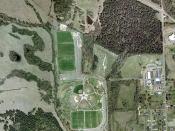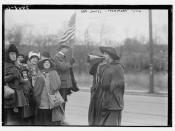J.C.H. Jones's article 'The Economics of the National Hockey League' (1969) purpose is to
explain through simple micro economics that the prime motive of professional hockey team owners
is profit maximization. The owners argue that their main interest is 'for the love of the game,' not the
financial benefits of owning a professional sports franchise and to avoid government regulations such
as the Combines Act (note 1).
An article written in 1982 by J.A. Schofield entitled 'The Development of First Class Cricket in
England,' states the behavior of sport cartels. Three hypothesises are used to explain the behavior
described by Schofield, number two being developed by J.C.H. Jones (1969). (1) The profit
maximization hypothesis. (2)The joint profit maximization hypothesis that the entire cartel (league)
strives for. This hypothesis does not incorporate non profit objectives that influence group behavior.
(3) The utility maximization model that allow for many possibilities usually compromising arguments
such as the success of the team at a given year and paid attendance for the team's venue.
By explaining the frame work of a professional sports league Jones introduces us to factors that
make an organized league function, which seems quite familiar to any other monopolistic markets.
Since no team can create any revenue by themselves they must form a coalition with another club to
produce a profit generating output, namely a hockey game. Other clubs enter this coalition thus
creating a formal league which we call the National Hockey League. Jones then states how revenue
is generated in the N.H.L and how it is affected by certain factors.
A theoretical model of the N.H.L is created by Jones with all things being equal, creating an
equilibrium amongst all clubs. The model is then adjusted to real life variables that turns his
theoretical model into what...

![Rosalie Jones' Army [Suffragettes] (LOC)](https://s.writework.com/uploads/17/172375/rosalie-jones-army-suffragettes-loc-thumb.jpg)
